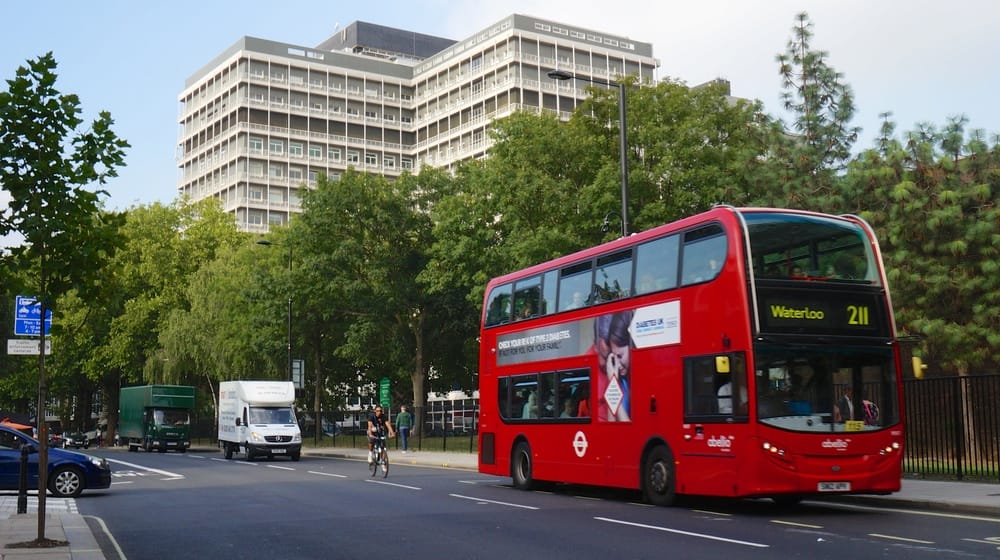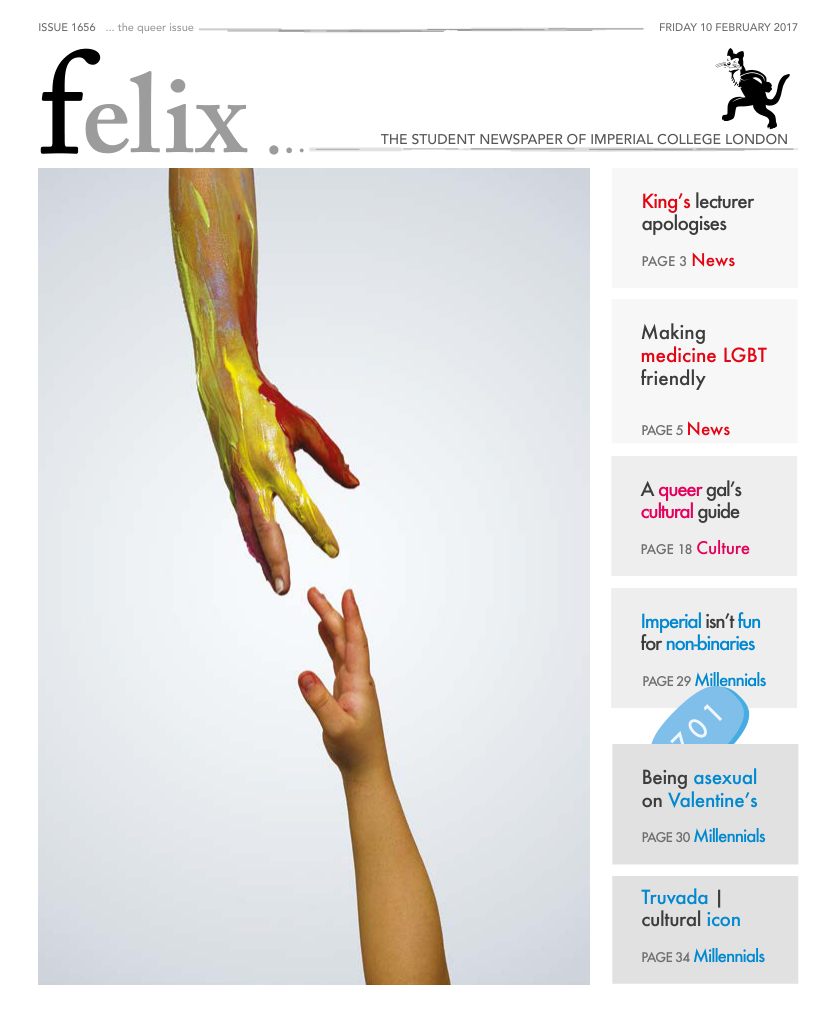Imperial students launch campaign to make medical curriculum LGBT-inclusive
Michael Wilkinson discusses the lack of LGBT training in the NHS and the steps that are taken to improve services for the queer community

The founding principles of the NHS were that it should meet the needs of everyone, be free at the point of delivery, and be based on clinical need, not ability to pay. Those of us watching BBC’s Hospital last week, were reminded of the importance of these values, as we witnessed overseas patients facing exorbitant bills for life-saving treatment.
Unfortunately, the NHS is not meeting the needs of everyone. A recent government report on transgender equality addressed the very real challenges facing trans people in accessing health services, highlighting “the persistent refusal of some GPs to even make referrals to gender identity clinics”. A recent survey of Imperial students conducted by IQ (Imperial’s LGBT+ Society), echoed this, with our trans peers having experienced discrimination from GPs and GUM doctors (sexual health specialists). Understandably this leads to distrust in a profession that ought to be the most trustworthy. One trans patient was even told they would be “taking money away from more deserving cancer patients”, an argument gay and bisexual men are used to hearing from the Daily Mail (denouncing HIV prevention drug PrEP), but not something we expect from our doctors.
LGB patients face similar prejudices, with Stonewall’s Unhealthy Attitudes report revealing that a shocking 24% of NHS staff have heard colleagues making negative remarks about LGB people. A similarly appalling 10% of staff have heard colleagues expressing the belief that LGB people can be ‘cured’ using conversion therapy, a sadistic practice that has been condemned by most major medical organisations. Doctors have been quoted stating that “being transgender is mostly a mental condition” and ”deviations are not to be considered by mainstream society”, attitudes that don’t belong in this century, never mind our public services.
The belief held by many that LGBT people are now on equal footing with their straight counterparts does not match the experience of the community, particularly regarding access to healthcare. This is largely driven by a lack of understanding, rather than wilful discrimination, with 10% of staff not feeling able to meet the needs of LGB patients – rising to 24% for trans patients. LGBT patients face higher rates of sexually-transmitted diseases, mental health problems and addiction whilst facing prejudice and ignorance from health professionals that discourage them from seeking help. Dr. John Dean, chair of the committee advising the NHS on gender identity services, explained that “People working in the service try to be empathic; they are certainly sympathetic, but they lack a great deal of background knowledge about gender incongruence and dysphoria.” This is symptomatic of a medical education system that is failing to prepare future doctors to support trans people, as well as the wider queer community.
Imperial is no different in this arena. One might expect an internationally renowned institution to be leading the way in improving quality of care for all patients, but the current curriculum is frustratingly light on LGBT issues. Apart from a vague reference to not discriminating against patients on the basis of sexual orientation or gender, and an acknowledgement that LGBT health inequalities exist, there is no teaching on the specific challenges faced by LGBT people. Some lecturers have made an effort to be inclusive in their teaching, but most fail to maintain a basic distinction between gender and sex. One of the most cited problems by Imperial medical students was that all gay men in our practice exam questions have HIV; it seems perpetuating this stereotype is the closest we can get to teaching about LGBT inequality.
This has prompted a campaign by a passionate group of students, medical and non-medical, queer and straight allies, to improve the medical curriculum. We’re aiming to include compulsory teaching on gender dysphoria, health inequalities, and non-binary gender identities/sexualities, as well as more diverse sexual health teaching. Medical students are taught to always communicate sensitively and put the patient first, so we are also campaigning to improve clinical communication teaching; small things like asking about pronouns and the sex of sexual partners make a big difference to patients. A laborious review of the current curriculum has yielded a comprehensive plan of where teaching can be improved, which was recently presented to Mr. Lupton and Dr. Harris, the Head and Deputy Head of Undergraduate Medicine.
Thankfully, the faculty have been very receptive to making these improvements, and they are being incorporated into the ongoing curriculum review process. It remains to be seen whether this will result in meaningful change to teaching, but we are hopeful that this will be implemented – and make a real difference to the future LGBT patients of Imperial doctors.








